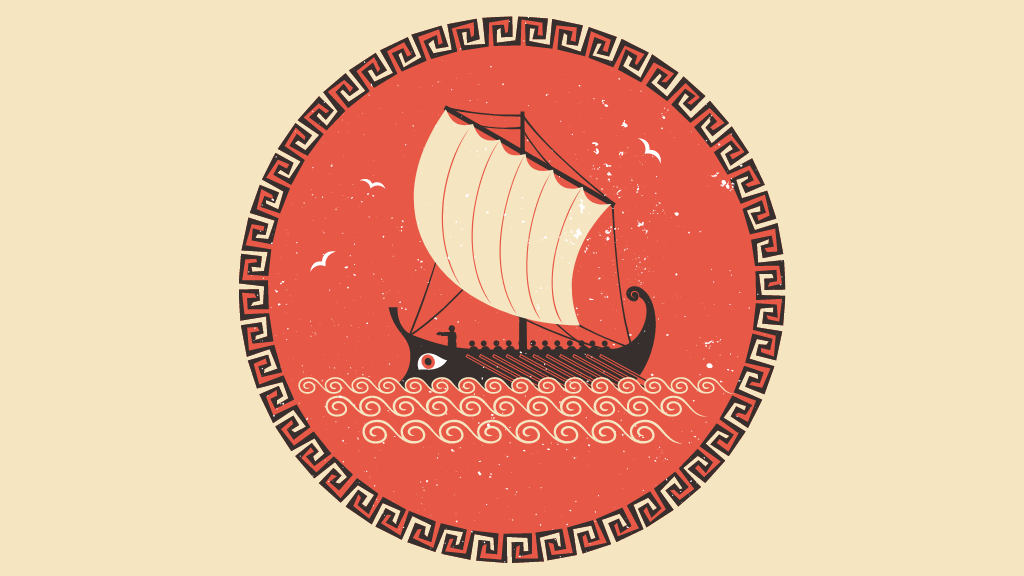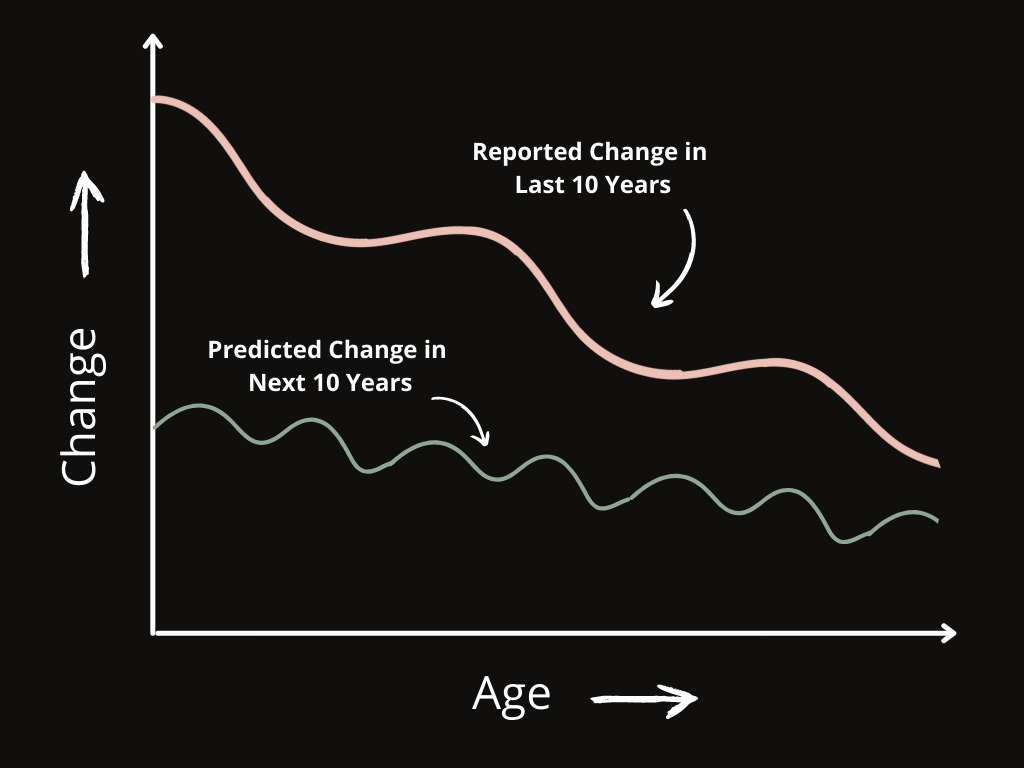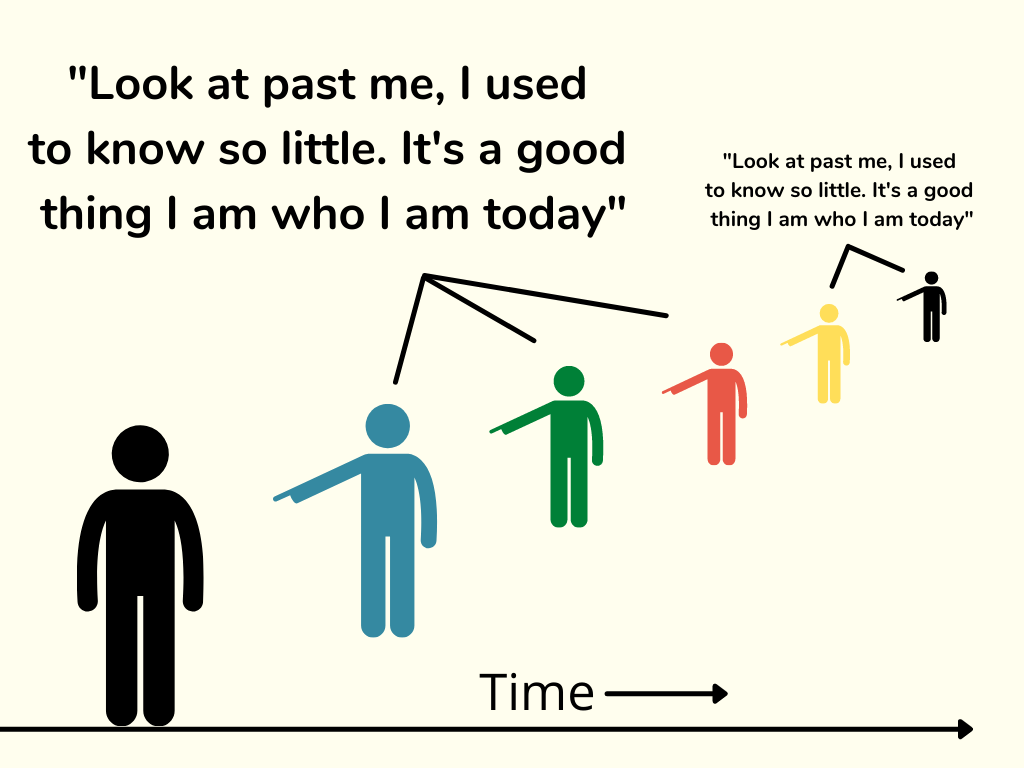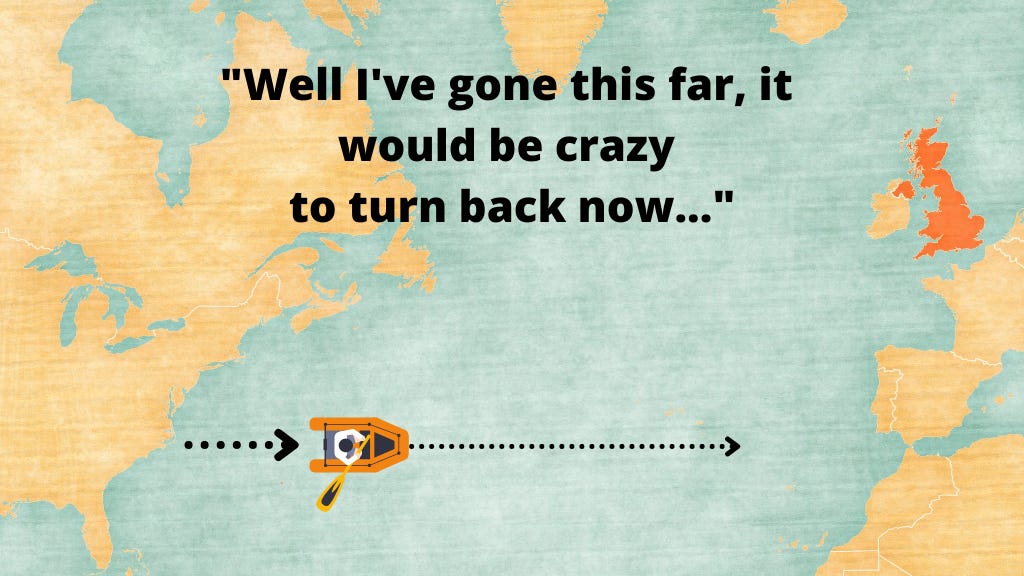The End of History Illusion
To better inform our decision-making, we need to remember that we are always works-in-progress.
6 min read
“Human beings are works in progress that mistakenly think they’re finished.
The person you are right now is as transient, as fleeting and as temporary, as all the people you’ve ever been.”
Daniel Gilbert
Theseus’ Paradox
If you’re willing to dive a little deeper into Greek mythology, past the stories of Gods and Titans, then you might come across the tale of Theseus (pronounced Thee-see-us).
It was said that Theseus, the mythical founder-King of Athens, sailed from Athens to Crete in a wooden ship to slay the Minotaur – a half man, half bull creature.
In honour of his victory, the people of Athens paid tribute to Theseus by preserving his ship in the Athenian harbour for hundreds of years.
When parts of the ship rotted or decayed, they were replaced.
Over time, every oar and every plank of the ship were replaced. No original parts remained.
Early in the 2nd century, Greek philosopher Plutarch wrote about the Ship of Theseus.
The question that Plutarch posed was this:
If all the ship’s parts had eventually been replaced so that no original parts remained, could it still be considered the Ship of Theseus or was it something else entirely?
In other words, how can every single part of something be replaced, yet it still remains the same thing?
Plutarch’s musings came to be known as one of the most famous thought experiments in history: Theseus’ Paradox.
The Ship of I: How We Change
So how is this relevant to us in everyday life?
I’m not here to discuss the philosophical implications of Theseus’ Paradox.
What I want to focus on instead is the parallel that can be drawn between the Ship of Theseus and ourselves, and what it means for us in practical terms.
Specifically, what it means for our decision-making.
Much like the Ship of Theseus, our bodies replace their parts. In fact, most of our cells are replaced with new cells every few years.
But more importantly than this, often our values are replaced.
Our fundamental beliefs can change, as well as our wants, our likes, our dislikes.
Ideals change: friends and nightclubs might be the priority in our early 20s. By our 30s it’s career and family.
Careers evolve, or sometimes stop completely.
Friends are gained and lost.
People fall in and out of love.
Just like Plutarch’s observation about the Ship of Theseus, all this change and replacement raises the question of who we really are over the course of our lives.
Which version of us is the “real” version?
The End of History Illusion
We humans aren’t very good at imagining our future selves with any accuracy.
The further into the future we try to imagine, the harder it becomes to predict who we will be.
Who will I be in 1 year? In 5 years? In 10 years?
Most of us believe that we’ll remain similar to who we are today.
We tend to underestimate how much we’ll change in the coming years or decades. This happens to us at every age.
And it happens continuously despite the fact that we are capable of recognising how much we’ve changed in the past.
Like a Magic 8-ball, our internal prediction systems seem limited to a set number of responses.
As psychologist Daniel Gilbert put it:
“When people say ‘I can’t imagine that’, they’re usually talking about their own lack of imagination, and not about the unlikelihood of the event that they’re describing.”
We tend to think that the majority of our personal change has already happened.
We think that the person we have just recently become is the person we were always meant to be.
The “real” version of ourselves.
This is called the End of History Illusion.
And it can cause us to overvalue things in our present to the detriment of our future selves.
Examples of overreaching based on current preferences are everywhere.
Spending your savings on a mortgage for an expensive house in the city centre might make sense when you are in your 30s.
But what happens when your 40-year-old self gets tired of the fast life and wants to move to the countryside?
It’s tempting to overpay for our dream house in the moment, reasoning that it’s our forever home. Only to find that preferences and needs change as we get older.
Many people work long hours to reach a career goal – climb the corporate ladder, get a particular title, or have a certain net worth.
It might only be on reaching these goals years later that some people realise their values changed somewhere along the way.
The goalposts moved.
Suddenly all those late nights at the office might not feel as meaningful as they once did.
Even though we are usually acutely aware of how we have grown and changed from our past selves, we consistently fail to understand how much we might change in the future.
It’s important to remember that just like previous versions, our current selves will evolve as well.
Sometimes into something entirely different.
Planning for the Future (feat. The End of History Illusion)
It’s one thing to be aware of the fact that you probably won’t have the same values in 10 or 20 years as you do now.
It’s another thing entirely to know how to plan for that possibility.
Unfortunately, there’s no easy answer - there’s a reason that the value of the global Tattoo Removal market is increasing year after year.
But there are a few things you can do to tip the scales in your favour.
1. Awareness & Flexibility:
Awareness is the first step.
Knowing you might change in unexpected ways in the future can keep you level-headed in the present.
This is especially true when it comes to personal finances.
A good rule of thumb is to make sure you always have some wiggle room on any large investments you make. Don’t overextend yourself.
Keep some cash in reserve just in case ‘future you’ decides to upend your life…
2. Avoid Sunk Cost Bias
Choosing a profession at the age of 18 that we’ll still be happy with at retirement is unrealistic for most of us. Yet this is what our education system asks us to do.
We put a lot of time, money, and effort into things like education and career.
This is perfectly normal. We have to commit to some things in life, otherwise we’d get nothing done.
But this doesn’t mean that we should avoid change when the facts change. Or when our priorities or life circumstances change.
You shouldn’t stick with something just because you feel you’ve invested too much in it already. Whether it’s a job, a project, or a relationship, it will only compound the problem.
3. The 10-10-10 Rule
Suzy Welch in her book 10-10-10: A Life Transforming Idea explains the method she came up with for making decisions which might have far reaching consequences.
The idea is simple. It’s designed to provide perspective on the decision-making process by asking:
What are the consequences of my decision in 10 minutes?
In 10 months?
And in 10 years?
The rule arguably works better in reverse. What if I had made this decision 10 minutes ago? 10 months ago? 10 years ago?
It forces us to zoom out and think about other versions of ourselves, and what a decision would look like from different perspectives.
The Bottom Line
Like death and taxes, change is inevitable.
I’m not suggesting that change is a bad thing.
Change can be good. Change usually means we are learning and growing as people.
To better inform our decision-making today, we just need to be aware that we haven’t finished evolving. We might have different values in the future.
We’re still works in progress.
If I had to leave you with a key take-away, it would be this:
One. Don’t be too hard on your previous selves. The information you had in the past will never be as complete as the information you have now.
Two: Remember that you are constantly changing, and the ‘you’ of today is not the finished product. Be open to change and growth. Plan accordingly. And remember that in a lot of cases, change can be a good thing.
Beyond that, I just hope that the version of you which started this article, and also the version of you that read to this point, found it useful.
If you’re enjoying the newsletter, I also write short threads on Twitter about biases & thinking traps.
1-2 min reads. Feel free to check them out!
Quality over quantity this week with two links to dive into:
Video: Brilliant Ted Talk from social psychologist Daniel Gilbert on the End of History Illusion.
Podcast: Trevor Noah conducts a fascinating interview with Derek Black, who was following in his father’s footsteps as a white nationalist leader until he began to change his mindset & question the movement’s ideology.






